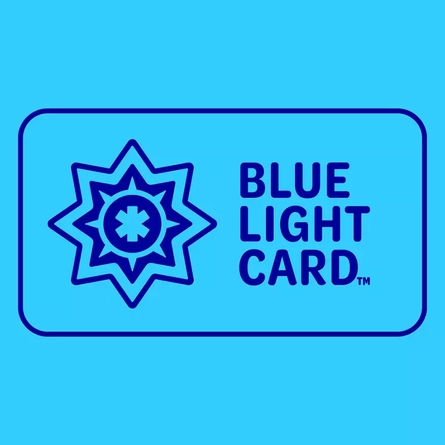Could Fostering Be Your Next Career?
Nurses and foster carers share a deep commitment to caring for and supporting others. As a nurse, you’ve honed the skills and compassion needed to face many challenges with empathy and understanding.
Fostering allows you to take those skills beyond the clinical setting, offering you the opportunity to make a lasting impact in a child or young person’s life. By providing a safe, nurturing home, you can help them feel supported and believed in, giving them the stability they need to thrive.
TACT is the UK’s largest dedicated foster charity. As such, we reinvest our surplus income into providing extensive support for our teams of foster carers.
Your Fostering Journey
As a nurse, you already have valuable transferrable skills. You are a ‘people person’ with a caring disposition, able to empathise using your active listening skills. You understand those who have experienced trauma and hardship, and you are instrumental in achieving great outcomes.
Let’s start you on your fostering journey…
Can I Foster?
Many people automatically rule themselves out of fostering due to many myths about who can and who cannot foster. Diversity and inclusion are top priorities for TACT because the more diverse our foster carers are, the more equipped they will be to provide care and support to more children and young people. There is, however, some initial practical criteria to fulfil:

✔ You are aged 21 or older (there is no upper age limit)
Being aged 21 or over will ensure that you have the emotional capabilities and life experience to fully care for a child or young person. Additionally, it helps to ensure that there is a sufficient age gap between older children and yourself.
However, there is no upper age limit! As long as you have the energy and capacity to make a difference to young people’s lives, it is never too late to start your fostering journey.
✔ You have at least one spare bedroom
Fostering standards state that all young people in foster care should have their own bedroom.
This is to provide children with a space that they can call their own. A place of calmness and privacy to help them recover from any past trauma they may have experienced.
There are a few exceptions around sharing a bedroom, but only for same-sex siblings. This would be agreed on a case-by-case basis. If you have your own children, they would not be able to share a bedroom with any young person in your care.
You would need at least one spare bedroom in your home before you could apply to be a foster carer.
✔ You are a full-time resident in the UK or have indefinite leave to remain
Being a full-time resident in the UK, or having indefinite leave to remain ensures that there is a commitment from you to provide continuity of care.
At TACT, the best interests of children come first. It would be disruptive for young people if their foster carer was required to return to another country. This would require them to move to a new foster home that may not be as beneficial to them as the care that you were providing.
✔ You have good spoken and written English
When you become a foster carer, you join a team of support around a child.
That team will include social workers, engagement and activity practitioners, teachers and medical practitioners. Being able to communicate verbally with a variety of professionals is essential.
You would also be required to keep records detailing the progress of any young people in your care, so good written English is vital.
✔ You have the time and availability to dedicate yourself to fostering
Fostering is very rewarding, but it also requires time, commitment, empathy, patience and skill.
Aside from personal qualities, there are also practical aspects – such as school drop-offs, training, meetings and medical appointments. Having the time and availability to dedicate yourself to fostering is essential.

Full Training
Becoming a foster carer requires no prior experience or training, although as a nurse your transferrable skills will be an asset to fostering.
We provide comprehensive training to ensure you feel confident and well-prepared to welcome children into your home. Our training is conducted both online and in-person.
As part of the assessment process, you’ll complete an introductory course called Skills To Foster. This brief online course offers an overview of fostering and a chance to ask any questions you might have.
Once you are approved as a foster carer with TACT, you’ll have access to a robust training program designed to enhance your abilities and empower you to support more children and young people.
We also offer specialised training to help you develop the skills needed to care for children with specific needs or challenges.
24/7 Support
At TACT, we understand the importance of round-the-clock support in transforming children’s lives. That’s why we reinvest all surplus funds into enhancing the services we provide for fostering families, ensuring help is available whenever you need it.
As a TACT foster carer, you will have a dedicated Supervising Social Worker with a manageable caseload, allowing them to provide personalised support and guidance, empowering you to make a meaningful difference to children’s lives.
This is what we provide:
- Full 24/7 support. Your Supervising Social Worker will be your primary contact, and our out-of-hours service ensures you always have access to advice and assistance.
- Foster carer portal. A user-friendly online hub where you can access essential information, training, resources, and guidance to support your fostering journey.
- Education service. A team of specialists committed to helping the children in your care access the best educational opportunities and tailored support.
- Health service. Regular monitoring of children’s physical and emotional well-being to promote their overall health and development.
- Support groups. Local groups provide opportunities to connect with other foster carers – to share experiences, and build a supportive community.
- Wellbeing initiatives. TACT provide a number of wellbeing support resources and services.
- Support for young people. Our Children’s Wellbeing Practitioners offer activities, events, and additional support for the children in your care.
- Supporting your own children. We recognise the valuable role your own children play in fostering. Our Children Who Foster events give them the opportunity to connect with others and share their experiences.
- Peer support. Where available, experienced TACT foster carers provide peer-to-peer guidance, sharing practical advice and encouragement with new carers.
Pay & Allowances
Foster carers are skilled professionals, and our fees and allowances are designed to recognise the vital role they play in transforming children’s lives.
In collaboration with Local Authorities, we receive funding to support the care of children and young people. This funding enables us to provide outstanding services and extensive support for our foster carers.
The fostering allowance you receive will vary based on factors such as the type of care you provide, the number and ages of the children in your care, and the complexity of their individual needs.
There are also payments for children’s birthdays, holidays and religious festivals. We also pay long service awards and a Refer a Friend fee (if you recommend someone who then goes on to be an approved foster carer with us).
Below, you can find examples of the weekly fostering payments you could receive when a young person is placed in your care:

“Being in a caring profession gives you insight into different situations and how to deal with them effectively. Working within a multidisciplinary environment is relevant in both nursing and foster care. There are many skills I think are transferrable from nursing to fostering – I know to deal with what’s important first and not to sweat over the small stuff. Understanding and compassion is key.
The most rewarding part of fostering for me is witnessing the children feeling more secure and gaining trust in adults around them. Creating a positive environment and therapeutic space. I would absolutely recommend fostering as a fulfilling career.”
Amanda, TACT Foster Carer
Your Wellbeing
Foster carers do an amazing job for the young people they care for, and the number one priority of a foster carer is always the wellbeing of the children they care for.
At TACT, we understand how important foster carer wellbeing is too. We know that foster carers who feel happy, valued and supported are able to better apply their skills and experience when caring for young people. That’s why we offer a range of services to help foster carers take care of themselves while caring for others.
Our foster carers have access to a range of different benefits and tools to support their wellbeing such as:
- Help@Hand account – a remote health care service
- Calm – a subscription to an award winning meditation and mindfulness app
- Blue Light Card – access to lots of discounts and offers
- Breathways – sessions that help focus on breathing techniques to reduce anxiety and manage stress
- Wellbeing Days Out – paid for by TACT, whether that’s a spa day, a picnic in the park, bowling or a meal out – it’s just another way we try to show our heartfelt appreciation for all the hard work our foster carers do
Could Fostering Be Your Next Career?
As a nurse, you already possess valuable transferrable skills and qualities that could be realigned to fostering. Your ability to provide compassionate care, and manage varying situations with empathy translates well into the role of a foster carer.
You are accustomed to responding to emotional and physical needs, meaning that you could provide the necessary stability and support for young people in care. Your communication skills would be invaluable when working as part of a team around a child, enabling you to communicate effectively with young people, birth families and professionals. You already have a deep understanding of health and wellbeing, which could help support young people with their mental health and any past trauma they may have experienced.
Your caring disposition, combined with practical expertise, could help change children’s lives.












